
by Editor | Sep 29, 2021 | Entrepreneurship
Maeeshat Network I Kolkata
Former President APJ Abdul Kalam once famously said: “Empowering women is a prerequisite for creating a good nation, when women are empowered, the society with stability is assured.”
When these words are viewed in the context of socio-economic development of India, they form the very foundation on which all collaborations and multi-stakeholder interventions are built.
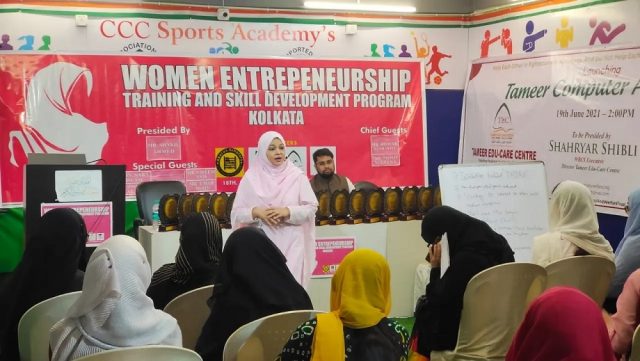
Rukhshi Kadiri Elias during training at Women Entrepreneurship Training and Skill Development Programme in Kolkata
As per MSME report 2019, the nation realized the impact women have had on the world over the years when Oxford Dictionary named Nari Shakti in 2018. Bain & Co. and Google 2019 report it was found that around 59% of women take up entrepreneurship to lessens their reliance on a husband or family and to achieve independence. India, being a substantial and heterogeneous country, has its share of women entrepreneurs who utilize entrepreneurial opportunities concurrently promoting their business mainly motivated by their concern for the environment.
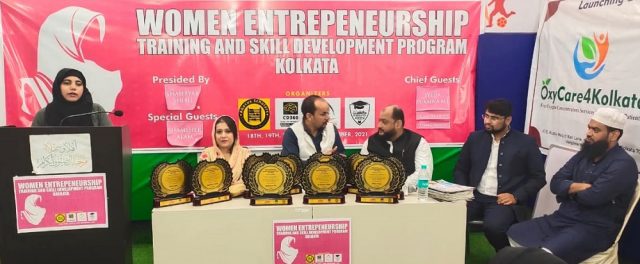
Sania Sami delivering inaugural speech at Women Entrepreneurship Training and Skill Development Programme in Kolkata
To delve deeper into the issue of women entrepreneurship, a three day women entrepreneurship training and skill development programme was organized by Sania Sami in association with Tameer Educational and Welfare Trust and in collaboration with Maeeshat Academy, Career Designer 360 and Abacus Scholar on the 18th, 19th and 25th of September,2021.
The training program was conducted by well-trained experts in different fields of business.
Sania Sami, a Research scholar, discussed the major motivational factors, business and general problems and crucial outcomes of entrepreneurship in the economy as well as at the individual level.
Danish Reyaz, Director of Maeeshat Academy, enlighten women about the importance of bearing uncertainty and taking calculative risks in business.
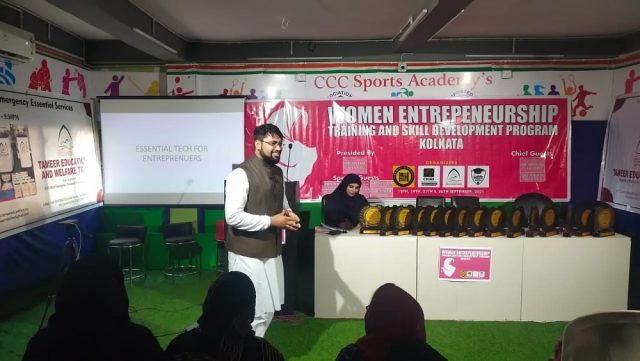
Huzaifa Arshad of Career Designer 360 during training at Women Entrepreneurship Training and Skill Development Programme in Kolkata
Rajkumar Pal, owner of Bureau Global Certification, discussed the significance of getting ones’ business legalized through registration. He focused on different rules and regulations and procedures encircling different business ventures to promote independence among women to get their legal formalities done for their business through themselves.
During the last leg of the session, Rukhshi Kadiri Elias, admin of Taajira (FB women entrepreneur group), articulated the importance of achieving work-life balance concerning both physical, mental health as well as societal health. She shared her escapade about the same. She postulated “beneath a hijab, there is a cognitive mind” and one needs to maneuver the same to identify and exploit the opportunities. She further discussed the crucial facets of living a healthy life viz., self-love, family-time, work-life, socially-active and lastly entertainment. She further motivated women to love and appreciate other women on a note that it is always beautiful to appreciate others, support others and grow with others.
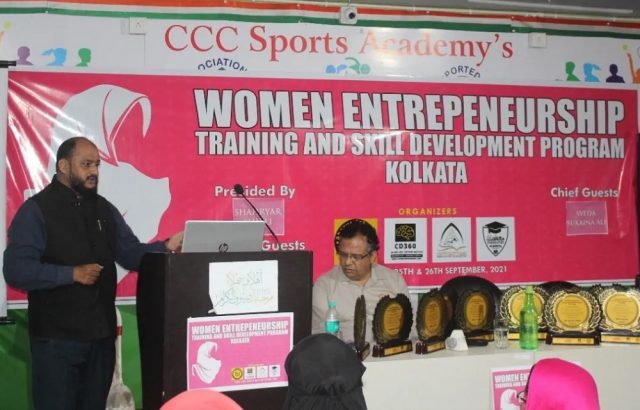
Danish Reyaz during training at Women Entrepreneurship Training and Skill Development Programme in Kolkata
Huzaifa Arshad of Career Designer 360, apprised women of sophisticated digital tools required to promote ones’ business. He propounded different digital apps and software such as Canva, Video Guru, Movavi, Digital Showroom. VidIQ were few to name.
The chief guests of the programme
Shakil Ahmed – (WBCS Executive) Special Secretary Minority Affairs and Madrasah Education Govt of West Bengal
Dr. Nayeem Anis- HOD of Urdu Department Calcutta Girls’ College
Ms. Nikhat Sultana- Principal of Genius National School
Dr.Shabtab Khalid- Wellness Couch and Soul Clinic proprietor
Umar Awais- President of Human Care Trust
Mrs. Saba Islam- founder of Happy Mommy Place and parenting coach

by admin | May 25, 2021 | Business Summit, Entrepreneurship, Events, Social Entrepreneur, Women Entrepreneur, Your Business Plan

Rashid Mukhtar
“To promote innovation, entrepreneurship, and awareness especially amongst female and rural students”
By Maeeshat News,
Malegaon, Maharashtra: Maulana Mukhtar Ahmed Nadvi Technical Campus (MMANTC) to organize and host their 1st National Conference on Technology to promote the innovation, entrepreneurship, and awareness especially amongst female students and rural students at MMANTC, Mansoora Malegaon on 23rd & 24th Feb 2019. The conference aims to bring together researchers, scientists, industry experts, academicians and policy makers to promote STEM, and specially promote & encourage women’s participation in STEM.
Honorable Rashid Mukhtar, Secretary JMES, said that “Our founder’s vision was to empower the youth of India through quality technical education. Through our conferences such as 1st National Conference on Technology we want to connect our students with Industry and skilled masters of the industry for their professional career and entrepreneurship journey.”
As one of the aims of the conference is to promote women’s participation in STEM, the organizers have invited Ainul Attar who is Former, Deputy Director DTE, Former, Joint Secretary of Minority Development Department, Government of Maharashtra, Ex-Executive council member of I.S.T.E., New Delhi as a Chief Guest to inspire the rural girl students.
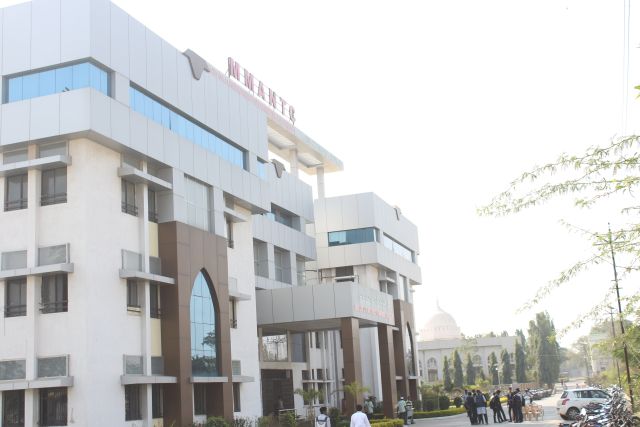
Side view
MMANTC have also invited Dr. Tausif Malik, Treasurer, Democrats Abroad India (Democratic Party USA’s International chapter), Founder MAHAbfic.com (Maharashtra Blockchain Fintech ICO Crypto currency) Pune, GCCStartup.News, All India Muslim Business Startup Network (AIMBSN), IndiaStartupFest.com, Muslim Spelling Bee, USA, Chicago as Chief Guest. He believes in the Gandhian Philosophy of empowerment of Rural India through sustainable development through Future Technologies. The sole objective is to promote and create a talent pool in Future Technologies creating sustainable development through “Reverse Migration”. He is a legend in his field and students will surely be benefited with his presence.
The MMANTC has also invited dignitaries such as Prof. (Dr.) N. B. Pasalkar Sahab, Dr. A. K. Kureshi, Dr. Neha Dand, Shahzed Lehry and Altaf Pirjade.
Dr. Munnazza Afreen, Chief Convener & Head, Faculty Training & Development; said that “Females participation in Technology and entrepreneurship is very low and through the conference we want to promote the same to our students, attendees and well-wishers.”
Dr. Munnazza Afreen further added that we want our students to benefit from the Government of India schemes such as Make in India, Digital India, and Skill India & Startup India.
Conference specifically focuses on publication with our publication partner IOSR Journal, JMES Startup Showcase, JMES Hackathon, networking, branding and most importantly campus recruitment of college students.
The conference organizers are seeking Sponsorship, Media Partnership, Applications & Judges for JMES Hackathon, Applications, Investors & Judges for JMES Startups Showcase, Strategic Partnerships for Recruitment & Internship opportunities. They can contact me via Email facultydevelopment.jmes@gmail.com.
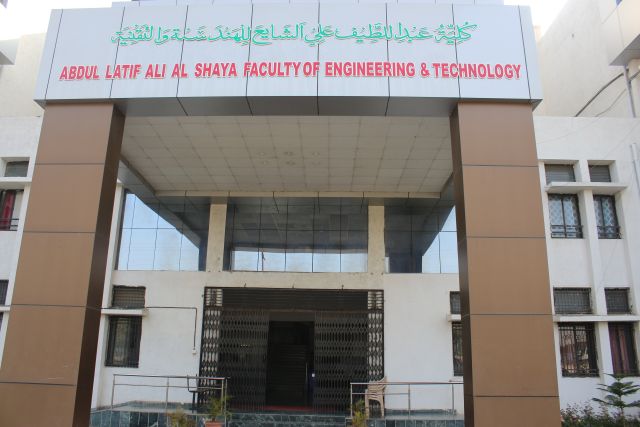
Front gate
About MMANTC
Maulana Mukhtar Ahmed Nadvi Technical Campus (MMANTC) is located at the outskirts of Malegaon, the textile township of northern Maharashtra. The college offers Degree and Diploma courses in Mechanical, Civil, Electrical and Electronics and Telecommunication Engineering since 2012.
The Technical Campus has been a dream project of the Society’s President, Maulana Arshad Mukhtar, a great visionary, philanthropist, industrialist, educationist, and a worthy son of a worthy father, Maulana Mukhtar Ahmad Nadvi, who founded Jamia Mohammediya Education Society (JMES) in the year 1978. JMES has twelve institutions running in various parts of the country. Maulana Mukhtar Ahmad Nadvi strongly believed that only through education would the people of India, gain the vision of the future while preserving their timeless cultural values. Maulana Arshad Mukhtar, having taken the mantle from him in the year 2007, has been painting the canvas with such elegance that Jamia Mohammediya Education Society is now a name in the country to reckon with.
For further details please contact
Dr. Munnazza Afreen,
Chief Convener Head, Faculty Training & Development JMES, Mansoora
Email: facultydevelopment.jmes@gmail.com
Mobile: +91 9930786821
http://www.mmantc.in/events/conference-technology-1/
For Registration
https://www.onlinesbi.com/sbicollect/icollecthome.htm?corpID=934644

by admin | May 25, 2021 | Entrepreneurship, Muslim World
 Abu Dhabi : The Khalifa Fund for Enterprise Development signed here on Sunday a $25 million agreement with the Mauritanian Deposit and Development Fund.
Abu Dhabi : The Khalifa Fund for Enterprise Development signed here on Sunday a $25 million agreement with the Mauritanian Deposit and Development Fund.
The agreement, signed in the presence of Crown Prince of Abu Dhabi and Deputy Supreme Commander of the UAE Armed Forces Sheikh Mohamed bin Zayed Al Nahyan and Mauritanian President Mohamed Ould Abdel Aziz, is aimed at providing support for micro, small- and medium-sized enterprises in Mauritania.
The agreement, signed by Chairman of Khalifa Fund for Enterprise Development Hussain Jasim Al Nowais and Director General of the Deposit and Development Fund Jekana Mohammado Yousef, stipulates for the disbursement of the amount in equal installments over the next five years.
After the signing ceremony, Al Nowais said the agreement is a testimony to the strong fraternal ties between the United Arabs Emirates and Mauritania as it provides a financial framework to support the efforts of Mauritanian government towards promoting a culture of entrepreneurship and supporting micro, small- and medium-sized enterprises. The agreement is also aimed at creating new job opportunities to the Mauritanian youth.
For his part, Yousef praised the support provided by the UAE to Mauritania in various fields, especially in the areas of enabling the youth and women to engage in their country’s economic development.
Since its inception in 2007, the Abu Dhabi-based Khalifa Fund for Enterprise Development has become one of the leading institutions aimed at instilling a culture of entrepreneurship and supporting SMEs in the UAE.
The Fund has financed more than 1,400 projects within the country. Its successful experience has been transferred to Egypt, Chechnya, Jordan and Belarus through pioneering financing programs directed toward strengthening government efforts in these countries to achieve sustainable development and build a diversified and stable economy.
—AB/UNA-OIC

by admin | May 25, 2021 | Corporate, Corporate Governance, Entrepreneurship, Startup Basics
 Bengaluru : Karnataka will soon set up an innovation authority to empower start-ups for the ease of doing business, said Chief Minister H.D. Kumaraswamy on Thursday.
Bengaluru : Karnataka will soon set up an innovation authority to empower start-ups for the ease of doing business, said Chief Minister H.D. Kumaraswamy on Thursday.
“The Karnataka Innovation Authority (KIA) will be set up through a law with powers to overcome legal hurdles the start-ups face in innovating technologies and ideas,” Kumaraswamy said, inaugurating the 21st edition of the Bengaluru Tech Summit 2018 in the state capital.
The innivation authority will be headed by the Chief Minister.
“We are also setting up a legal framework to protect Intellectual Property (IP). A blockchain-based IP registry will be formed to protect smart ideas for commercialising them,” said Kumaraswamy.
Asserting that the JD-S-Congress coalition government was backing the IT industry to ensure its innovation thrives in the southern state, retaining its leadership in the transformation of the country through digitization.
“The state government is also granting seed capital up to Rs 50 lakh to each start-up with innovative ideas to provide socio-economic solutions to the people, facing several challenges,” the chief minister told the gathering of industry leaders, executives, geeks, officials and entrepreneurs.
Kumaraswamy, who also holds the finance portfolio, provided Rs 16 crore in the state budget for the fiscal 2018-19 after coming to power in May.
The state government has also set up the Accelerated Assisted Elevate for the starts-ups in backward areas, including the Hyderabad-Karnataka region in the state’s northern parts, about 500km from Bengaluru.
About 10 start-ups from the old region were selected for funding them this year.
“As innovation and entrepreneurship will be the driving forces, we have set up 58 K-Tech Innovation Centres across the state to encourage and nurture innovations in the farm sector,” said Kumaraswamy.
Technology sharing and promoting joint research projects are key strategies being adopted to engage with the leading innovation ecosystems.
“We have set up a framework for innovation engagements with global leaders to ensure a strategic approach to developing and leveraging our international partnerships,a added Kumaraswamy.
As designing will be the engine of growth, a Centre of Excellence for designing technology products will be set up in Bengaluru.
The state government is also forming global innovation alliances with countries developing the eco-system for innovation and entrepreneurship.
Bengaluru is ranked 20th among the world’s innovation cities.
—IANS
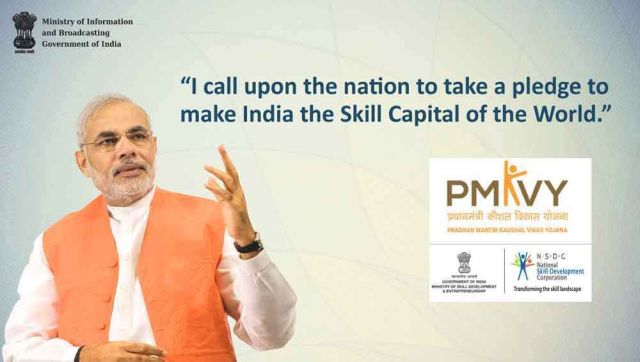
by admin | May 25, 2021 | Entrepreneurship, Opinions, Startup Basics, Startup Financing
 By Annapoorna Ravichander,
By Annapoorna Ravichander,
I recently had the opportunity to conduct a hands-on workshop on entrepreneurship, creativity and communication for three government colleges in Aizawl, the capital of Mizoram, with two of my colleagues.
We went to Aizawl with limited knowledge of what to expect. Six days of interacting with a bunch of college students primarily with a social science background was something that we were looking forward to.
I did some research on what the government had to offer with reference to skill development and entrepreneurship for students. The Pradhan Mantri Kaushal Vikas Yojana (PMKVY) states that 10 million youth will benefit from this scheme by 2020. The government website states that this scheme will be initiated by the National Skill Development Corporation (NSDC).
The primary objective of the workshop was to help students to think out of the box. This was done by encouraging them to think of a community problem that bothers them and find a solution. This clearly helped them relate to the schemes provided by the government, which supports entrepreneurship by enhancing knowledge using the latest technologies.
This also helped students to try and think of innovative ways of solving problems. For example, a group of students came up with a concept of increasing tourism in Aizawl, since there is a huge scope but the city lacks the wherewithal.
Since the government already has a clause that states the scheme will provide a platform to facilitate training for special projects, it was imperative to encourage the students to clearly communicate their needs. The session on communication discussed body language, importance on carrying appropriate communication materials while going for a meeting, and audience mapping, to name a few.
The training was an eye-opener, in terms of the lack of awareness of students to use technology for skill development and entrepreneurship.
The hands-on workshop involved a lot of activities to apply the knowledge imparted. For example, when the concept on ideation was explained and students were asked to come up with problems encountered in their daily life, they shared “problems” which was for us something that was solved, sorted and addressed. As a result of this, we had to customise some of the concepts to suit the needs of these students so that we could achieve the desired results. While there are the schemes/opportunities available there are some challenges faced by the modus operandi of imparting education.
While English is the official language all subjects (in college) are taught through the vernacular language. As a result, there is no practice and hence no scope to improve communication in the English language.
Because of lack of practice in using the English language, the students were unable to respond to questions despite having knowledge. They ended up being passive learners with no scope for interaction. An innovative way of handling this subject will perhaps improve the quality of education. For example, apart from following a text book method, role-plays, activities to understand and apply the learnings may perhaps provide confidence to the students.
Having a close-knit socio-cultural background sometimes hampers the growth of a society. There are strong organisations like the Young Mizo Association (YMA), Kristian Thalai Pawl (KTP) and Thalai Kristian Pawl (TKP) but they bond the Mizo society and hence exposure to several opportunities are ignored
Looking at the brighter side, several technical and vocational courses have been initiated. Students now stand a chance to opt for courses like pharmacy and nursing, technology, engineering, veterinary, business management, to name a few.
The city is clean following some of the best practices. The traffic is heavy but people have great respect for fellow commuters. Despite narrow lanes jammed with traffic, one does not hear the blaring of car horns/scooter honks from impatient drivers/riders. The several road curves also reduce the speed of the traffic and people follow rules.
Rain water harvesting is practised due to scarcity of water. Dustbins are provided at all junctions hence there is no littering of garbage.
The sun rises at around 5 a.m. and sets around 5.30 p.m. Hence life starts early and all shops close at 5.30 p.m. since it becomes dark.
There are no beggars or scavengers on the road. Almost every shop is run by women and they do it with great efficiency.
Sundays are spent in church, since Mizoram has a high population of Christians.
(Annapoorna Ravichander is an independent writer. The views expressed are personal. She can be contacted at annapoorna@pacindia.org)
—IANS











